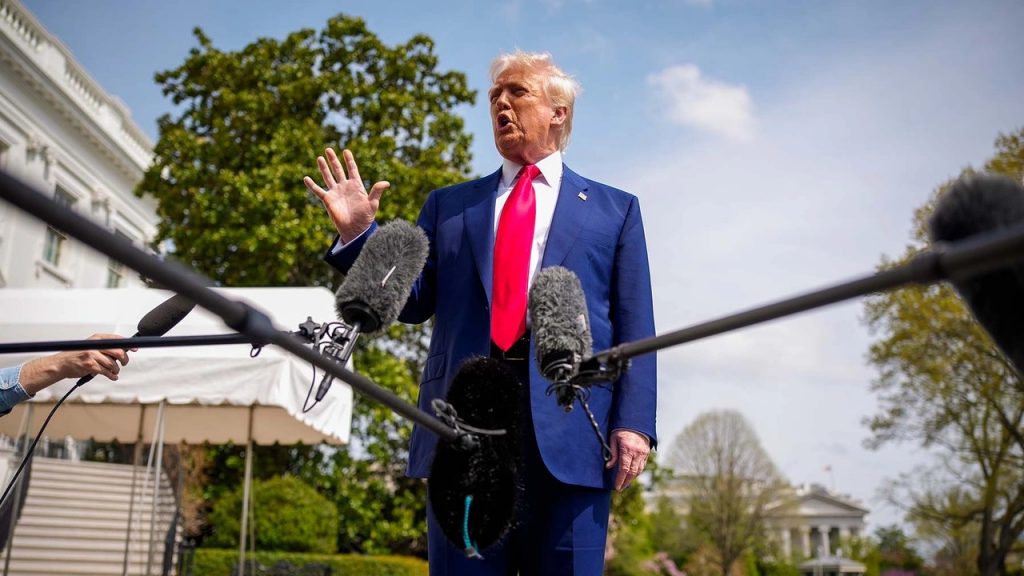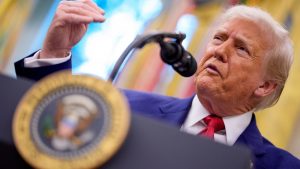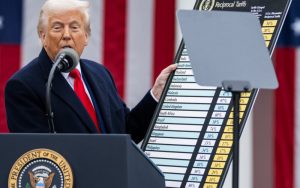
As widespread Trump tariffs go into effect, congressional leaders consider limiting the president’s authority to preserve trade relationships.
“Liberation Day” has come and gone, but the hangover effects of President Trump’s new tariff policy continue to reverberate. Across the agriculture word, reactions ranged from cautious optimism to outright contempt.
American Farm Bureau Federation President Zippy Duvall warned tariffs will take a toll on American farmers. In a Wednesday AFBF press release, Duvall noted more than 20% of farm income comes from exports. Farmers also depend on imported supplies like fertilizer and specialized tools. Tariffs will drive up prices for those items. Retaliatory tariffs from other nations will likely make American ag products more expensive across the globe, diminishing demand..
According to Duvall, that combination not only threatens farmer’s competitiveness in the short term but also risks the U.S. permanently losing market share. He encouraged the administration to quickly resolve trade disagreements to avoid putting farmers and ranchers in the crosshairs of retaliatory tariffs.
“Trade is critical to the success of farmers and ranchers across the country,” Duvall said. “We share the administration’s goal of leveling the playing field with our international partners, but increased tariffs threaten the economic sustainability of farmers who have lost money on most major crops for the past three years.”
National Farmers Union President Rob Larew offered similar sentiments, warning that policymakers must recognize the consequences of their decisions extend far beyond the farm. He said entire food systems and communities are at stake. According to him, farmers rely on stable markets and fair competition to survive. He fears Trump’s tariff policy will create instability at the expense of family farmers.
“The economic strain and uncertainty that farmers face have reached a breaking point,” Larew says. “Without meaningful support and a commitment to fair trade policies, we will lose even more family farms, weaken rural economies and ultimately drive up costs and limit choices for consumers at the grocery store.”
National Cattlemen’s Beef Association officials saw some positives in Trump’s actions. NCBA Senior Vice President of Government Affairs Ethan Lane said other nations have long been threatened by U.S. beef because it is the highest quality beef in the world. According to him, that has caused other countries, notably Australia, to restrict market access.
“The fact the president is willing to use this tool as a way to prompt negotiations and rectify some of those non-tariff barriers in particular, we believe, is something that could be incredibly beneficial to cattle producers,” Lane said in an NCBA radio interview. “Now, that being said we want to make sure we’re really careful with how we proceed here.”
He added NCBA plans to continue informing the president and his team about challenges and make sure they have good statistics and information when making decisions.
Could Congress step in?
On Wednesday, the Senate voted 51-48 to overturn President Trump’s proposed tariffs on Canada. Republicans Mitch McConnell, Rand Paul, Susan Collins and Lisa Murkowski joined all Senate Democrats on the vote. Paul signed on as a cosponsor to the bill that was introduced by Sen. Tim Kaine, D-Va.
“Working Americans want costs to go down, not a tax hike in the form of nonsensical tariffs,” Kaine said shortly after the vote. “We sent a powerful message with this vote: we will not stand idly by while President Trump launches a needless trade war with Canada that will raise costs for families, hurt American businesses and damage our relationship with one of our closest trading partners and allies.”
Kaine urged the House of Representatives to take up a similar bill, though that may be a tough task. Thus far, there does not appear to be enough Republican support for any bill to pass.
On Thursday, Sen. Chuck Grassley, R-Iowa, and Maria Cantwell, D-Wash., introduced another bill that would give Congress final approval on tariffs issued by the president. While the bill seems to have little chance of passing, it’s evidence that at least some Republicans may be looking to distance themselves from Trump’s trade policies.
Among other things, the Trade Review Act of 2025 would require the president to notify Congress of any new or increased tariffs within 48 hours. Congress would then have to approve any tariff changes within 60 days for it to remain in effect. Congress would also have the authority to end tariffs at any time through a resolution of disapproval.
“For too long, Congress has delegated its clear authority to regulate interstate and foreign commerce to the executive branch,” Grassley said in a prepared statement. “Building on my previous efforts as Finance Committee Chairman, I’m joining Senator Cantwell to introduce the bipartisan Trade Review Act of 2025 to reassert Congress’ constitutional role and ensure Congress has a voice in trade policy.”
You can now read the most important #news on #eDairyNews #Whatsapp channels!!!
🇺🇸 eDairy News INGLÊS: https://whatsapp.com/channel/0029VaKsjzGDTkJyIN6hcP1K























